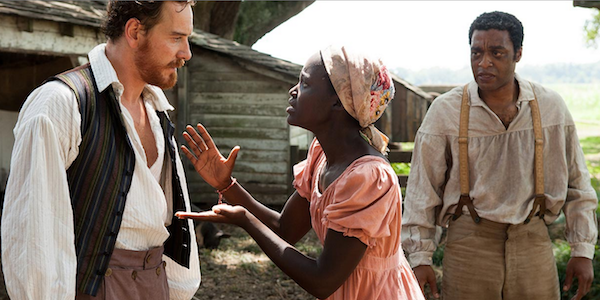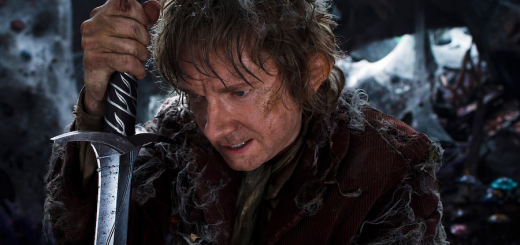
Review – 12 Years a Slave
IMDB: 8.5 Rotten Tomatoes: 97 %
Opens: 30th January
Based on the true account of Solomon Northup, a free man who was abducted and enslaved while visiting Washington DC, 12 Years a Slave is a harrowing cinematic experience. When we first meet Solomon (played by Chiwetel Ejiofor) he is a skilled fiddle player with a wife and family, but by a ruse he finds himself drugged, chained, and sold to slavers. Through Steve McQueen‘s direction, and Ejiofor’s sublime acting, we are made to experience Northup’s anguish, helplessness and desperation as he is denied his freedom, stripped of his identity, and made to work on a plantation as “Platt, the runaway slave”.
We know, of course, that Solomon Northup will eventually achieve his freedom. But McQueen asks us to consider all the moral wherefores of Northup’s place in pre-Civil War America, and forces us to acknowledge the fate of those slaves who were even less fortunate than he. Where we expect an uncomfortable experience from this film – one involving unusual cruelty, base brutality, forced labour, lynching and rape – we are also provoked to contemplate those countless and silent millions who get little screen-time or none at all.
We are also forced to imagine ourselves in the period, variously as a more resistant slave or a more considerate slaver. On the latter point, Benedict Cumberbatch and Michael Fassbender are of structural importance, but it is Ejiofor who is crucial. He doesn’t give us the traditional performance of a protagonist who is beaten down and yet eventually becomes triumphant; rather, we see this person who is constantly negotiating his position between the defiant Northup, indignant at his bondage, and the resigned Platt, who finds community with his fellow slaves. To become one or another is to betray something important, so he has to be both, and it’s this which makes the film profound rather than polemical.
The cinematic experience of 12 Years a Slave is something like grief. It doesn’t pull at your heartstrings so much as tears at your ribcage, and leaves you floored and gutted. And this is as much to do with the historical reality of the film’s context as the care and proficiency that went into its production. After all, there is so much here I haven’t even been able to even mention – Sean Bobbitt’s powerful cinematography, Paul Dano‘s chilling performance (his first scene creates a psychopathic atmosphere which never quite lifts), and Lupito Nyong’o‘s portrayal of utter desperation. But this film is much more than a heavy experience: it’s a cinematic event, and one well worth seeing for the beauty of its construction as for the importance of its context. We can easily sneer at Oscar-bait, but watch this film and you will find it has depths.
[youtube=http://www.youtube.com/watch?v=vUQNjfhlREk&w=400]





